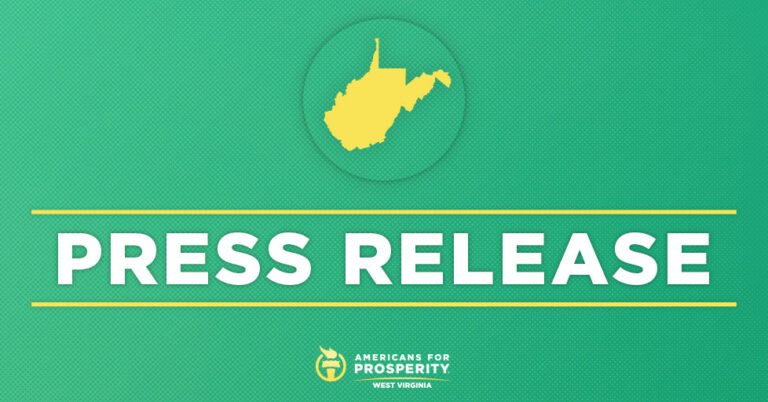
Americans For Prosperity Releases Legislative Scorecard
“We look forward to highlighting our policy champions and thanking them for standing with us to provide opportunity for all West Virginians.”
CHARLESTON, WV – Americans for Prosperity – West Virginia (AFP-WV) today released its 2022 Legislative Scorecard.
The full Scorecard downloadable PDF is available here. The digital version of the scorecard can be found by visiting WVscorecard.com. AFP-WV will follow up the release with events and digital and direct mail promoting the scorecard.
AFP-WV State Director Jason Huffman released the following statement:
“Our goal at AFP-WV is to make West Virginia a better state to live, work, and raise a family. During the 2022 session, we were invested in policies to increase access to more personalized health care, reduce tax burdens, increase energy production, and reform the criminal justice system so that it is smart on crime and soft on taxpayers. The Legislative Scorecard is a tool for citizens to see how their lawmakers at the State House voted on some of the most critical issues from the session. We look forward to highlighting our policy champions and thanking them for standing with us to provide opportunity for all West Virginians.”
The scorecard was based on votes on the following 13 bills:
- Exempting certain health services from certificate of need (HB4643): This bill would repeal Certificate of Need (CON) laws, to end the requirement that medical providers had to seek permission from state bureaucrats to open or expand medical practices. (Support)
- Relating to the prescriptive authority of advanced practice registered nurses (HB4111): This bill would expand the scope of practice for advanced practice registered nurses and physicians assistants, to increase the number of health care providers. (Support)
- Repealing ban on construction of nuclear power plants (SB4): This bill would repeal the ban of constructing nuclear power plants in West Virginia to broaden the state’s energy supply. (Support)
- To reduce personal income tax rates (HB4007): This bill would cut West Virginians personal income tax by 10%, while also reducing the overall tax burden. (Support)
- Requiring work search activities to qualify for unemployment benefits (SB3): This bill would help more West Virginians gain employment. (Support)
- Relating to unemployment benefits program (SB2): This bill would reduce the unemployment eligibility from 26 weeks to 20 weeks to eliminate fraud and prioritize citizens in need. (Support)
- Reinstating the film investment tax credit (HB2096): This bill would reinstate the state’s corporate giveaway for filming in West Virginia. (Oppose)
- Creating Student Journalist Press Freedom Restoration Act (SB216): This bill would ensure First Amendment protections for student journalists, specifically that no student’s work is restricted by administrative beliefs. (Support)
- Generally relating to broadband (HB4001): This bill aims to build on the progress of closing the digital divide by extending broadband access. (Support)
- Prohibition on county, city, or municipality restrictions on advanced air mobility aircraft (HB4667): This bill would identify trends in the drone industry and work with the industry to maximize benefits while maintaining uniformed deployment rules. (Support)
- Relating to the expungement of criminal records (HB4522): This bill would require the government to expunge acquitted individuals’ records, replacing current law, which requires the innocent individual to wait and petition the government to clear their name. (Support)
- Relating to revising the criminal code generally (HB4006): This bill would keep low-level and non-violent offenders incarcerated at a time when state and local governments struggle to fund more proportionate sentences. (Oppose)
- Clarifying that the policy-making and rule-making authority of the State Board of Education is subject to legislative review, approval, amendment, or rejection (HJR102): This bill would increase the transparency and accountability of the Board of Education by providing the legislature with greater oversight of the board’s rules, allowing for greater representation in terms of the state’s educational policies. (Support)


